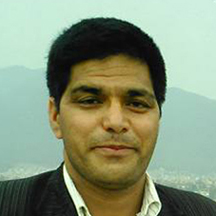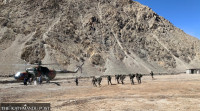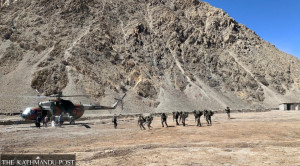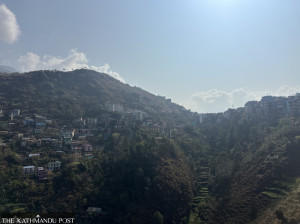Karnali Province
Kalikot women say they feel more at ease with female doctors
There are six male and three female doctors at the Kalikot district hospital in Manma.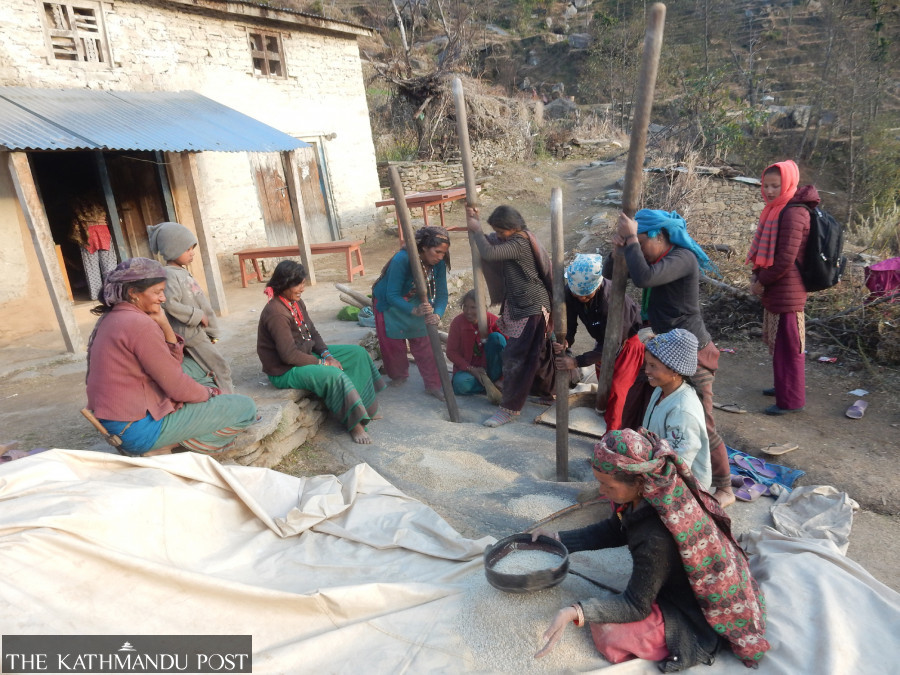
Tularam Pandey
Dr Kiran Shahi, a resident of Khadachakra Ward 1 in Kalikot, has been working in Kalikot District Hospital in Manma, the district headquarters, for over two years now. She is among the nine doctors at the hospital.
“There are six male and three female doctors at the district hospital,” said Shahi. “Four of us are Kalikot natives.”
Having female doctors, that too from the local community, has made it easier for women to seek treatment, local women say.
For Menuka Pandey of Khandachakra Municipality Ward 3, having female doctors at the district hospital means she can openly talk about her health issues with the medical staff.
“Earlier when there were no female doctors at the hospital, it was difficult to talk to male doctors about my problem,” said Pandey. “But now, women come to the hospital without hesitation.”
Shahi also says that the women find it easier to talk to female doctors about their health issues.
“I studied medicine with the sole purpose of serving in rural areas because I know how hard it is to access health services in the villages,” Shahi said. “I had medical issues when I was 14. My parents had to take me to Kathmandu because my treatment wasn’t possible in Kalikot. I want the local people of Kalikot to be able to access medical treatment in their own district.”
According to Shahi, after the arrival of female doctors in the district hospital, local women have actively started seeking medical advice.
“Women in rural areas hide their ailments from male doctors because they don’t feel comfortable with them. But since we got here, women from the villages have started openly discussing their health issues,” said Shahi.
“Most women in the villages are suffering from uterine prolapse caused by frequent pregnancies in the hope of a male child and a lack of nutritious food during pre-and post-natal conditions. Previously they would not seek treatment for their ailment but these days they have started seeking medical help from us.”
Besides physical ailments, the women have also started discussing their mental health with health professionals, Shahi said.
The number of women seeking maternity services at the hospital has also increased since the arrival of the female doctors. According to the hospital data, 150 women sought maternity services at the hospital in the month of January. On January 11 alone, the hospital provided maternity services to 11 women.
Dr Ramita Nath Yogi has also been serving at the district hospital for almost a year now. A native of Lalu village in Narharinath Rural Municipality, Yogi completed her MBBS on a government scholarship. Accessible health care in rural areas is what Yogi strives for.
“I lost my mother to cancer when I was eight years old. If she had received proper medical intervention, maybe she would have survived,” said Yogi. “Her untimely death is what fuelled my passion to work for accessible health care in rural areas.”
It’s been nine months since Dr Apsara Hamal of Foimahadev village in Tilagufa Municipality started working at the district hospital after completing MBBS. She too decided to return to her home district after earning her MBBS with the purpose of serving the rural population.
“After the local women became doctors, it has become easier for female patients to openly express their problems, which helps in diagnosing their diseases,” said Dr Ratnavir Sunar at the district hospital.
Meanwhile, plans to expand the 29-bed district hospital are ongoing, according to Gaura Ghratimagar, information officer at the Kalikot District Office in Khandachakra Municipality 1.
“The construction of a new hospital wing is ongoing. Currently, we are serving patients from the old building,” she said.
The new building of the hospital will have 50 beds.




 14.24°C Kathmandu
14.24°C Kathmandu